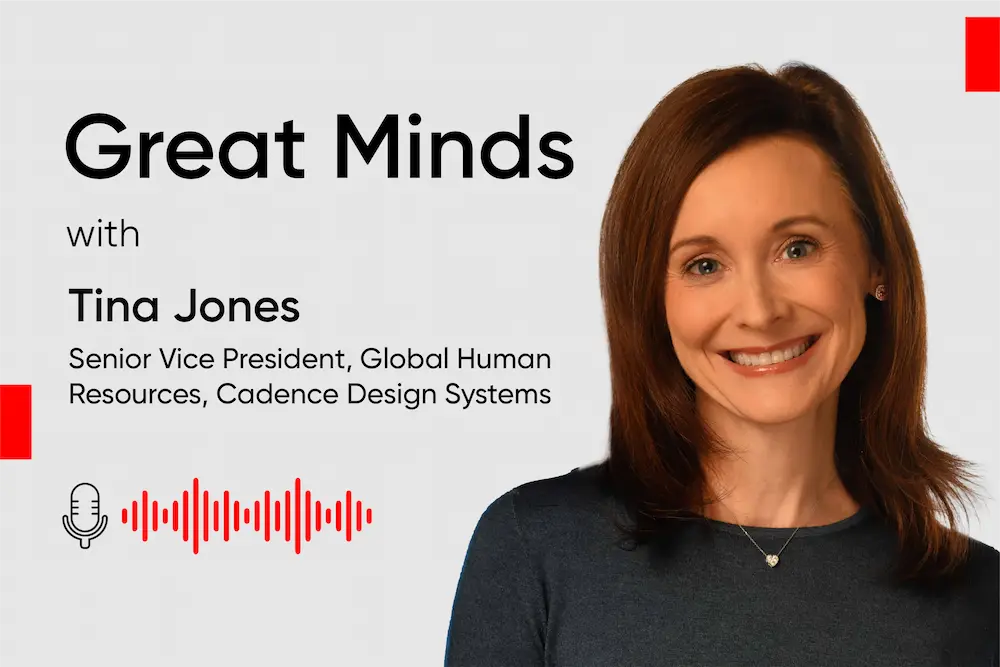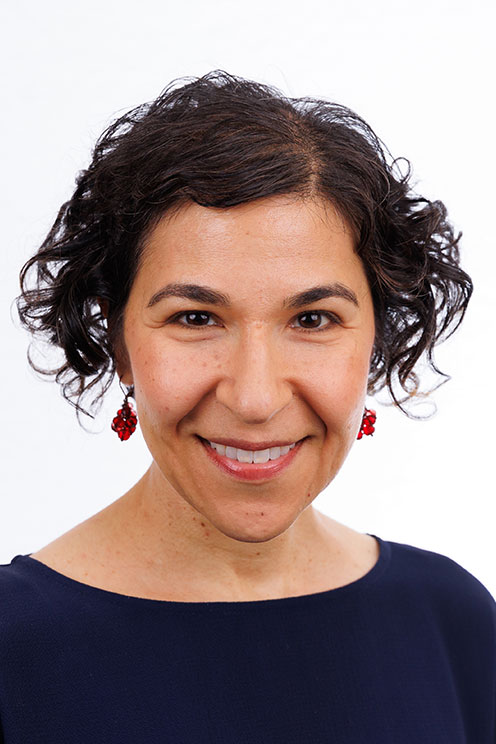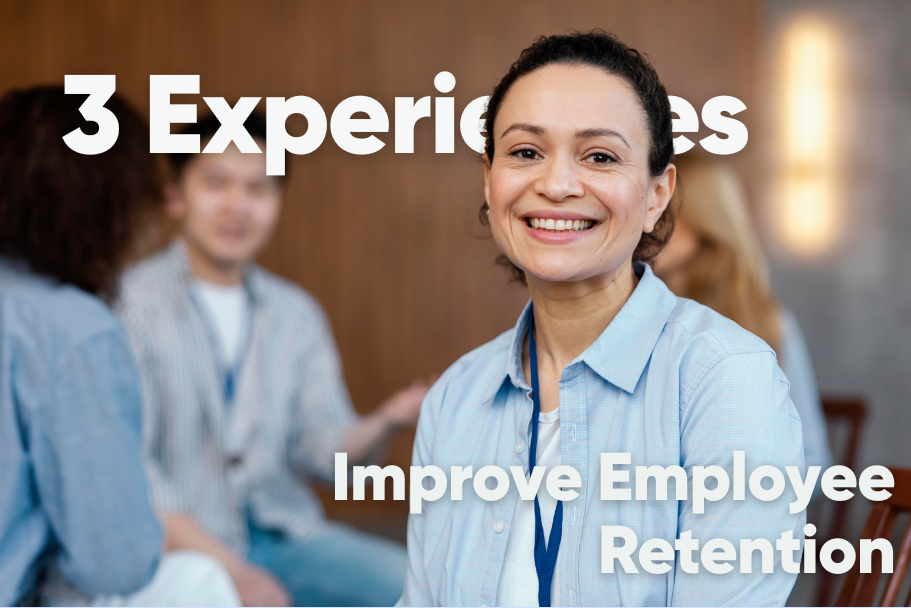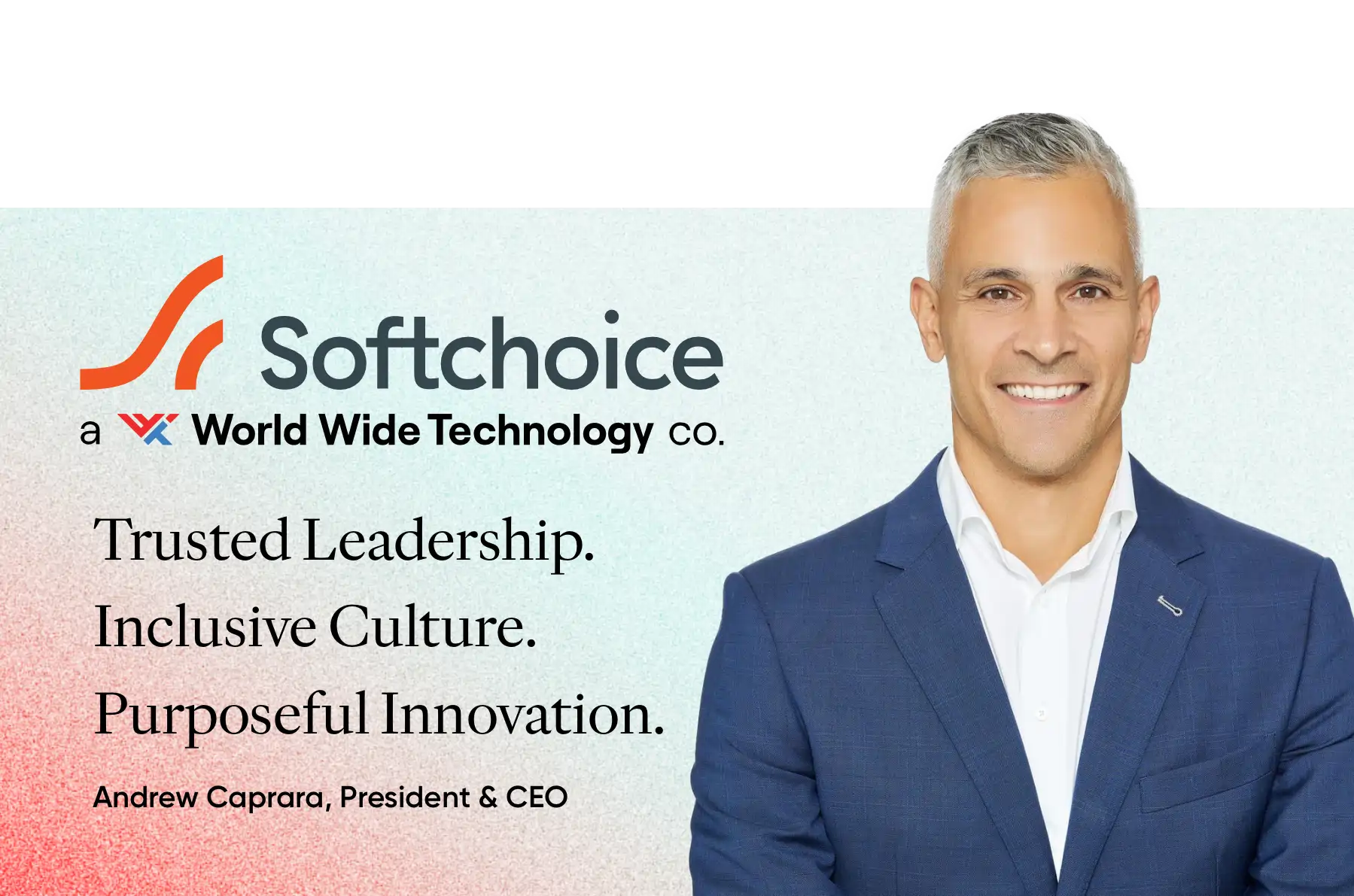Podcast Highlights
- Tying Bonuses to Diversity Goals: Cadence links the top 100 leaders’ bonuses to their progress on creating more equitable teams, specifically in areas like representational diversity and hiring/retaining women. This accountability drives leaders to mentor, attract diverse talent, and focus on broader organizational change.
- Avoiding Mistakes with Inclusion Groups: Tina emphasizes that inclusion groups should be more than networking spaces. Their input should be tied to critical business strategies, ensuring that voices from diverse groups contribute to policies, development, and innovation.
- Essential HR Skills: Key HR competencies include strong communication, project leadership, good judgment, and agility. Tina also stresses the growing importance of data literacy for HR leaders, noting that credibility and influence stem from being able to speak from a data-driven perspective.
“Being comfortable with numbers, analytics, and data is becoming more and more important to being an HR leader. You have to speak from a place of data to be credible and to have influence.”
On this episode of the Better podcast, Tina Jones, senior VP of global human resources at Cadence, talks about a unique approach to making the company's top 100 leaders accountable for creating more equitable teams.
Hint: it involves their paychecks.
She also shared how to avoid mistakes around inclusion groups by tying their input to business strategy so they’re more than networking and social groups
We also dove into the most important skills HR pros — newbies or veterans — should have.
On the impact of tying leaders’ bonuses to progress around creating more equitable teams:
The mistakes we've probably all made over the years is that these groups can be sidelined and become networking social groups, and not be listened to as a way to create business success.
For example, we want to empower the women at Cadence to have a serious voice on policies, development, mentorship, and things that are business critical so we can hopefully move those areas in a way we wouldn't be able to do without their voice.
We’ve brought women together from all over the world and broken them into groups around their interest areas. That can be around: Are our policies equitable? Do women have a voice when we're sitting around a table working on a problem together? And if they don't, what do we need to do to help managers bring people together in a more inclusive way, and pull out people's voices, and make sure we're innovating and getting different perspectives and not just hearing from the same people?
On where companies can begin to transform their ERGs:
There's a lot that can be done incrementally with a little shift in mindset on how we listen and how we incorporate feedback. We can bring their voices in without asking for millions of dollars of investment, without totally transforming what you call your ERGs, without having the CEO bless it before you go and do it.
To the extent companies already have ERGs, maybe you tilt the conversation a bit more toward what can they do to make sure you bring their voice back before you make decisions — whether it's mentorship, development, or how you recruit.
On top HR skills:
I do think there are some core skills. Are you a good communicator — written and verbal? Are you a good project leader?
People in HR need good judgment, need to be a strong communicator, and need to be agile and able to adjust.
Also, being comfortable with numbers, analytics, and data is becoming more important to being a HR leader. You have to speak from a place of data to be credible and to have influence.
FAQs
- How does linking leaders’ bonuses to diversity goals impact organizational change?
Tying bonuses to progress on diversity and inclusion ensures that leaders prioritize these goals. It encourages them to actively engage in mentoring, attracting diverse talent, and driving equitable change within their teams and the company culture. - What is the best way to ensure inclusion groups contribute to business success?
To avoid the common pitfall of making inclusion groups mere social or networking spaces, businesses should tie their input to critical areas like policy development, mentorship, and business strategy. This gives these groups a meaningful voice and helps drive business outcomes. - What are the key skills HR professionals need to succeed today?
HR professionals must be strong communicators, project leaders, and adaptable to change. Increasingly, they also need to be comfortable with data, analytics, and numbers to make credible decisions and have a stronger influence within the organization.
Tools & Resources
- Company Culture: “Cultivating a purpose-driven company culture that aligns values with actions to drive sustainable success.”
- Employee Engagement:“Empowering employees through meaningful engagement strategies that enhance productivity and foster long-term loyalty.”
- Leadership & Development:“Building visionary leaders through continuous development, driving innovation, and shaping the future of our organization.”
- Diversity and Inclusion:“Embedding diversity and inclusion into the core of our business strategy to unlock the full potential of every individual.”
Feedback
We greatly appreciate the experiences and insights of our readers. If you’ve implemented any of the inclusive strategies discussed or have valuable insights from your journey towards creating a more inclusive workplace, we invite you to share your stories. Your feedback not only enhances this resource but also helps others in fostering a culture of belonging and inclusion. Please share your thoughts in the comments section below or reach out to us directly. Your experiences can inspire and guide others striving to make a difference in their organizations.
Get Certified 
Think your company is a Great Workplace? Get certified today to make it onto our best workplaces lists.
Original Podcast Published by Great Place To Work® USA : Click here to visit the page.






